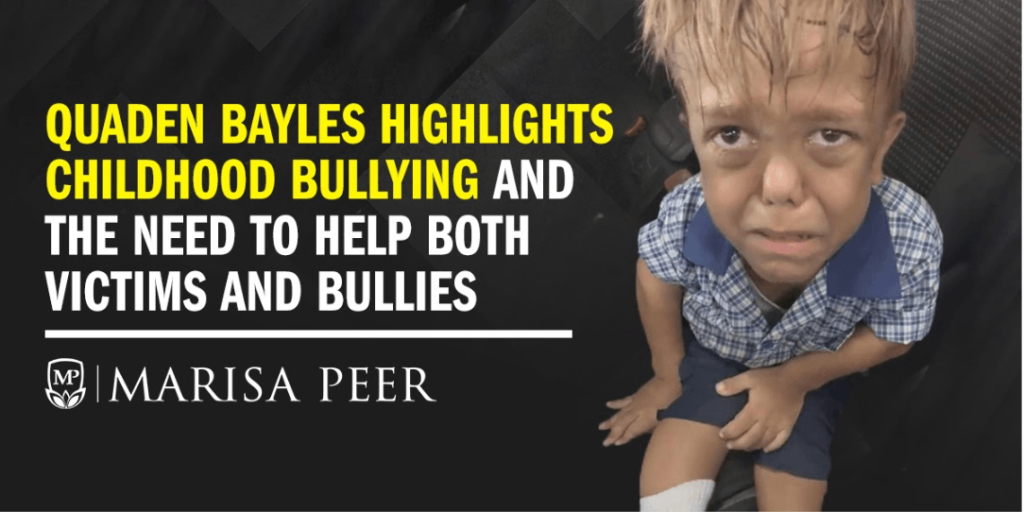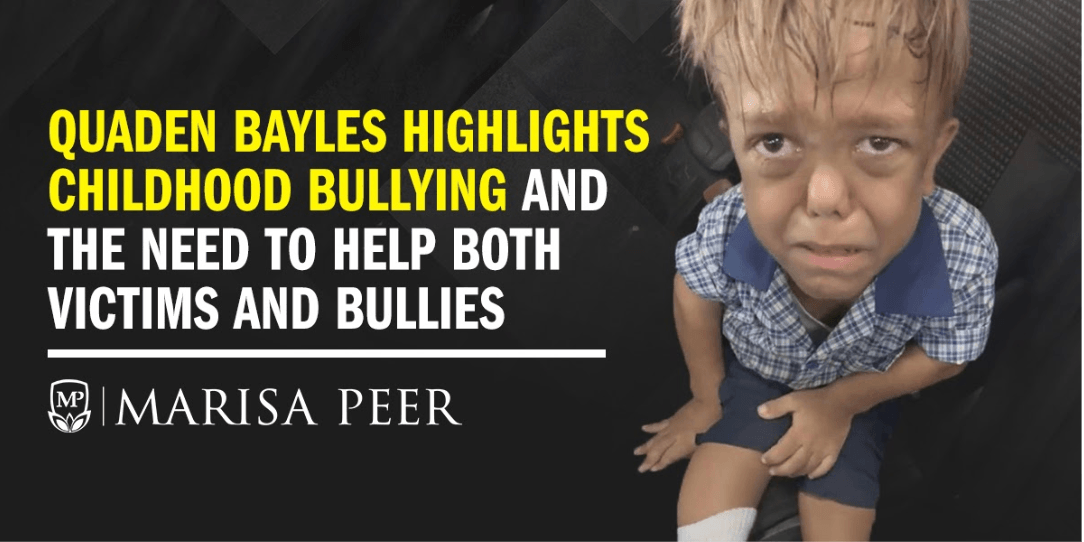As a parent, bullying can leave you feeling as helpless as your child.
What do you do when your child is so devastated over being bullied, they say they want to end their life?
Yarraka Bayles found herself in that exact situation when she arrived at school to collect her son. She found him sobbing over the latest episode of bullying.
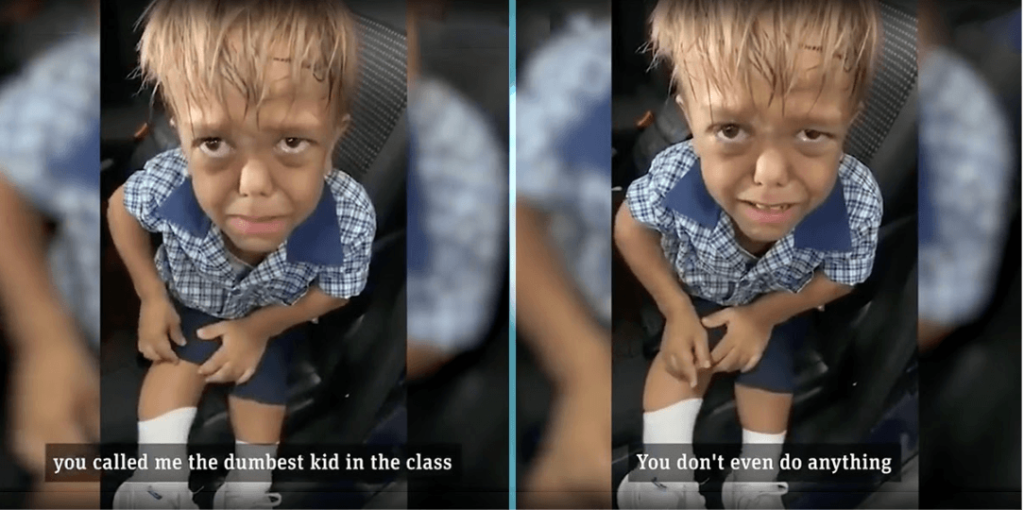
Not knowing what else to do, Yarraka Bayles decided to post a video online of her son’s reaction to the bullying – to show the very real consequences and effects of bullying.
Yarraka’s son is Quaden Bayles. That video has since gone viral and his face is recognized all over the world.
This article will look at what happened to Quaden and what you can do if you find out your child is being bullied or is bullying someone else.
Who is Quaden Bayles?
Quaden Bayles is a nine-year-old boy who lives in Queensland, Australia. He is Aboriginal and lives with dwarfism.
He has been subject to regular bullying at school.
What happens in the video of Quaden?
Yarraka posted a six-minute video which shows her son sobbing in the family car following the latest bullying incident.
The heartbreaking video shows a distraught Quaden saying he wants to end his life: “I wish I could stab myself in my heart,” he cries.
Yarraka can be heard saying; “I’ve just picked my son up from school, witnessed a bullying episode, rang the Principal, and want people to know – parents, educators, teachers – this is the effect bullying has.
Every single… day, something happens. Another episode. Can you please educate your children, your families, your friends.”
The global response
The video has been viewed over 21 million times. Quaden has been shown support from high profile sports players and celebrities.
Quaden – you’ve got a friend in me. #BeKind @LokelaniHiga https://t.co/8dr3j2z8Sy pic.twitter.com/jyqtZYC953
— Hugh Jackman (@RealHughJackman) February 20, 2020
[tcb-script async=”” src=”https://platform.twitter.com/widgets.js” charset=”utf-8″][/tcb-script]
Quaden has always dreamed of being a rugby league star and was invited to lead the Indigenous All Stars out, ahead of an exhibition match against the New Zealand Maoris on Saturday 21 February.
In the video invitation, captain Latrell Mitchell showed his support for Quaden: “We’ve got your back and just want to make sure that you’re doing alright.”
His appearance on the pitch was met with resounding cheers from the crowd.
Yarraka described her son as “going from the worst day of his life to the best day of his life.”
A spotlight on bullying
Last week, we discussed the impact cyberbullying can have on adults, following the news that British TV presenter Caroline Flack had taken her own life following a campaign of online abuse.
Children are even more vulnerable and the scars from schoolyard bullying can follow us into adulthood. Low self-esteem, depression, addiction, and unhealthy relationships are just some of the long-term consequences caused by bullying in school.
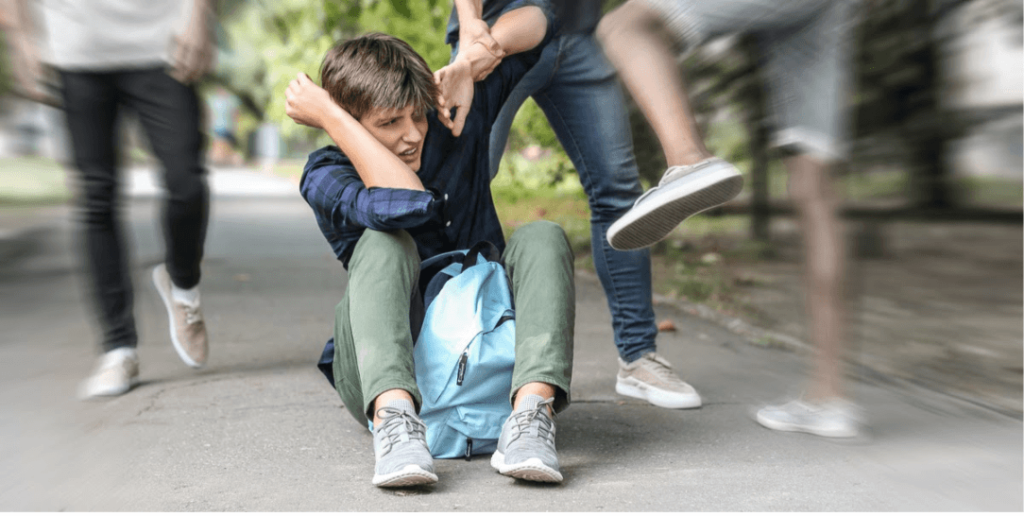
With 1 in 3 children in the US being bullied, it is time to take action.
Globally-acclaimed therapist, Marisa Peer, is passionate about helping anyone affected by bullying understand where the negative behavior comes from. Finding out that your child is being bullied or is themselves the bully is devastating news, but there are things you can do.
Marisa shares her expert advice on how to overcome bullying, both from the perspective of a child being the bully and also being bullied.
My child is a bully
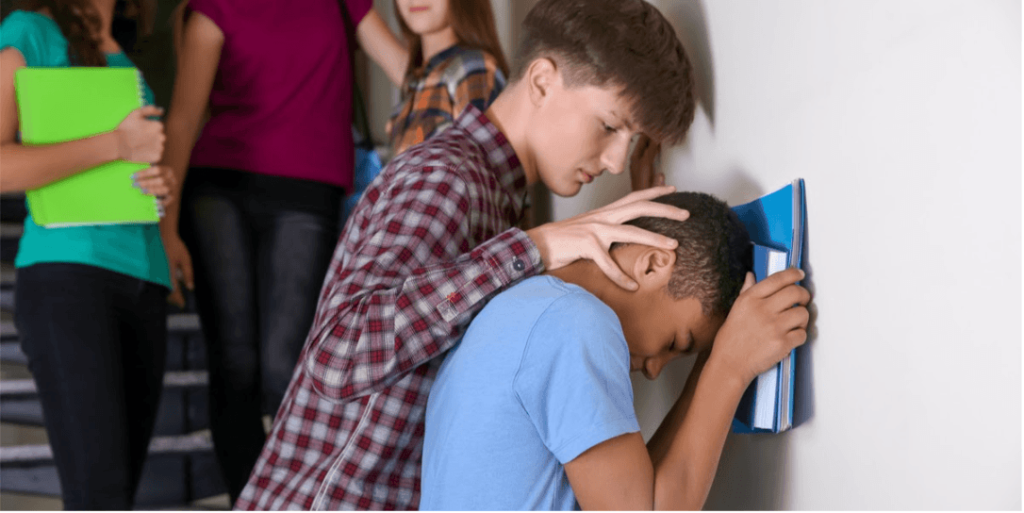
Discussions around bullying in schools focus more often on the victim. In order to stop bullying, it is important to look at why the bully has become a bully.
For parents, hearing that your child is a bully can lead to denial and anger – it is almost like going through the five stages of grief. Once you have accepted the news, it is natural to blame yourself. Know that you have not failed your child. Because you care and want to help them, makes you a good parent. Try to reserve judgment or harsh criticism of yourself – it will not help your child.
The immediate reaction to bullying children is punishment. Of course, the impact of their behavior needs to be firmly discussed, but as Yarraka Bayles requested, we need to educate.
If your child is picking on someone of a different race or with a disability, it is important to address the differences between them and the other child. Tell them those differences are OK, we are all different and do not all have to be the same. Ask them how they would feel if it were happening to them.

Marisa says the most critical people are their own worst critics – so try not to criticize your child. Instead, try using positive reinforcement. Praise them when they show respect and kindness to others.
Also, think about why your child might be bullying others. Insecurity, low self-esteem, feeling out of control – these are all factors that could be at play. Focus on helping your child feel worthy. They are most likely acting out and hurting others because they are feeling low themselves.
In this empowering anti-bullying resource, Marisa describes it like being on a seesaw. If someone feels much lower than others, they will try to tip the scales and raise themselves up by bringing others down.
If your child is struggling to open up to you about how they are feeling, you might want to seek professional help. You have likely never considered hypnotherapy before, but it can have a powerful impact on your child’s self-esteem.
Rapid Transformational Therapy (RTT) is an advanced form of hypnotherapy, which rewires the mind, replacing the negative thoughts your child has about themselves with unshakeable self-belief. When they feel empowered and confident, they will no longer feel the need to put others down. Find out more about how hypnotherapy can help children and teens.
My child is being bullied
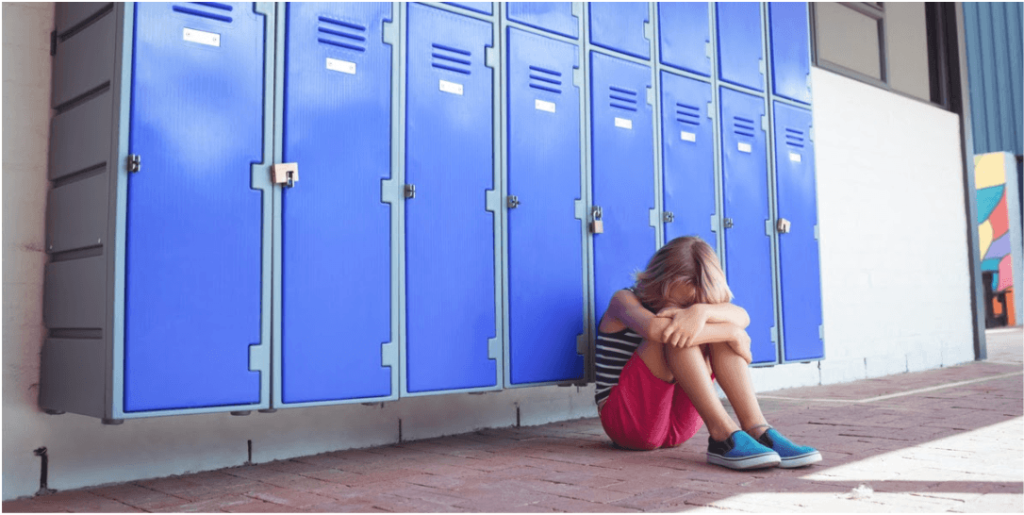
Even the most successful, accomplished people can fall victim to bullying. It is shocking to hear that teenage environmental activist Greta Thunberg was badly bullied at school. Just like Quaden, she was targeted for being ‘different’, because other children did not understand her autism.
Bullying in school can have devastating effects, but Marisa Peer says victims can take back control.
“You can’t stop bullies, but you can change the way you respond to them,” she says. “If you teach your kids how to deflect negativity, bullies will move on. Bullies like easy targets and confident kids are not easy targets.”
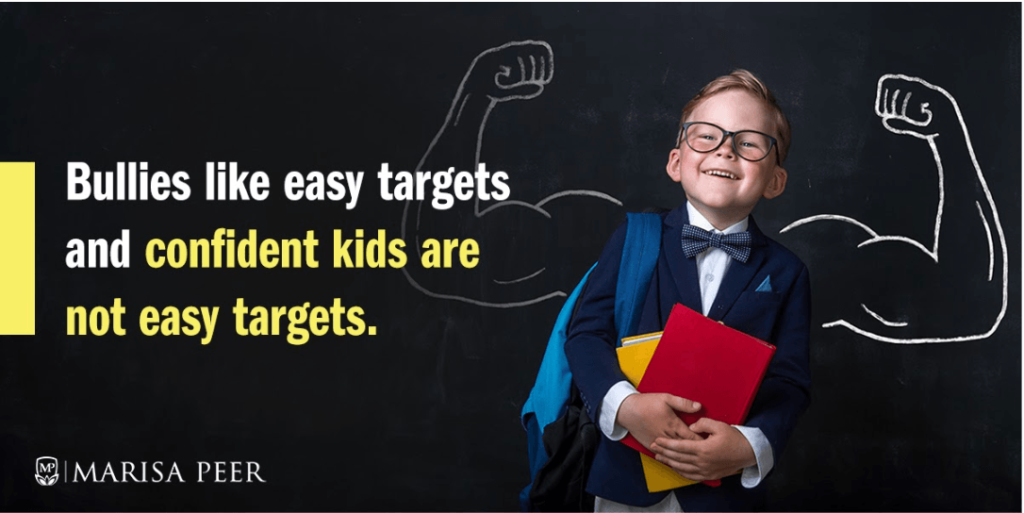
Building confidence in your child starts at home. Remind them every day that they are enough. Encourage them to focus on the hobbies and talents that give them a sense of self-worth.
Just as you remind them daily that they are enough, remind them that their bully does not feel enough and is probably far more miserable than them.
Put Marisa’s favorite affirmation ‘I Am Enough’ in places where your child will see it around the house.
Whether your child is showing bullying behavior or is the victim of bullying, instilling a sense of confidence and self-worth in them will have an extraordinary impact.
For more advice on bringing up confident children, read Marisa Peer’s bestselling book Ultimate Confidence: The Secrets to Feeling Great About Yourself Every Day.

